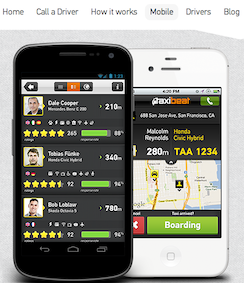Victoria Mindova
Electronic procurement, services and accounting operations in the public administration can save individuals and businesses more than two billion euro annually. This is what George Doukidis, a professor at the Athens University of Economics specializing in electronic systems and entrepreneurship, stated at a business forum. "Greece has a huge and very cumbersome public administration, which first needs to be simplified, and then, to be digitalized." Because this is not an easy task and one that requires a lot of money, the digitization of administration should be outsourced to foreign private companies, which already apply models developed in different directions, Doukakis suggests.
Instead of investing and spending time in the development of specialized electronic systems for procurement control and optimization, the public administration can employ already developed platforms used in the market. "In Greece, there are already three private companies that offer similar services. We can benefit from their know-how or invest in the creation of another two or three such companies that will not only serve the needs of the Greek public administration, but will be able to find new customers in foreign markets," Doukidis told GRReporter.
He stressed that this was a successful business model of public-private partnership in many countries, for example in Scandinavia and in many other advanced countries. The same applies to the imposition of charges on services by government institutions. The cumbersome administration burdens the citizens with unnecessary costs that can be effectively reduced by the introduction of new technologies. "We can turn to banks, for example, as they offer services for a specific fee. Thus, a service that now costs me ten euro can drop to one euro."
The data show that the annual turnover of electronic trade in Greece is currently about two billion euro. More than 800 companies have been operating in the country, developing and offering a variety of applications and online services. They contribute less than 1% to the GDP, and these results can triple, Doukidis said. "Greece has very good technical specialists in the field of information technology, but they lack vision. Entrepreneurial spirit should be supported," the teacher stated.
 The president of Upstream Systems, Marcos Veremis, presented a series of examples of how the electronic age creates new business opportunities. The first positive example Veremis presented was workablehr.com, which is a web-based platform for small and medium businesses worldwide to recruit and manage staff. The platform has accumulated several million euro for its owners in just two months and interest in it is continuing to grow. Two partners have developed it – a sales expert and an engineer who are under 40 and are from the Gerakas neighbourhood in Athens.
The president of Upstream Systems, Marcos Veremis, presented a series of examples of how the electronic age creates new business opportunities. The first positive example Veremis presented was workablehr.com, which is a web-based platform for small and medium businesses worldwide to recruit and manage staff. The platform has accumulated several million euro for its owners in just two months and interest in it is continuing to grow. Two partners have developed it – a sales expert and an engineer who are under 40 and are from the Gerakas neighbourhood in Athens.
 Another successful digital development by young Greek entrepreneurs is the website taxibeat.gr, which has a mobile application for smart phones. The application allows the user to choose a taxi near his or her location. The user can choose a taxi that has the best rating by customers who have already used its services. "It is a revolutionary service for the sector itself, as a taxi driver pays around 100-150 euro to be connected to the radio taxi company. With the online application, he pays 0.50 euro per call, which greatly reduces the cost of connection. It is beneficial to the customer as well because in Greece, the customer pays three euro just to call a taxi for the same day and four euro to call a taxi for the next day. Here's how a pure private initiative without state interference or subsidies can put in order a market that has been functioning improperly from the outset," Veremis said.
Another successful digital development by young Greek entrepreneurs is the website taxibeat.gr, which has a mobile application for smart phones. The application allows the user to choose a taxi near his or her location. The user can choose a taxi that has the best rating by customers who have already used its services. "It is a revolutionary service for the sector itself, as a taxi driver pays around 100-150 euro to be connected to the radio taxi company. With the online application, he pays 0.50 euro per call, which greatly reduces the cost of connection. It is beneficial to the customer as well because in Greece, the customer pays three euro just to call a taxi for the same day and four euro to call a taxi for the next day. Here's how a pure private initiative without state interference or subsidies can put in order a market that has been functioning improperly from the outset," Veremis said.
Finally, the businessman presented the idea of two girls of how proper marketing can turn ordinary  beach towels into a successful international business through the Internet. The question the two girls asked was "What is it that is associated with Greece and demanded by the general public?" And the answer was "The Greek summer". The most specific thing they have associated with the summer in the Mediterranean country was the beach towel. Their website is sunofabeach.com and in less than three months, they sold over 1,000 beach towels with beautiful patterns in Greece, Italy, Canada, USA and UK. They advertised mainly through social networks that provided them with immediate access to users anywhere in the world. "The democracy of the world wide web rewards the best products," the businessman concluded.
beach towels into a successful international business through the Internet. The question the two girls asked was "What is it that is associated with Greece and demanded by the general public?" And the answer was "The Greek summer". The most specific thing they have associated with the summer in the Mediterranean country was the beach towel. Their website is sunofabeach.com and in less than three months, they sold over 1,000 beach towels with beautiful patterns in Greece, Italy, Canada, USA and UK. They advertised mainly through social networks that provided them with immediate access to users anywhere in the world. "The democracy of the world wide web rewards the best products," the businessman concluded.
Dionysis Kolokotsas who is a public policy manager at Google talked about the difficulties the Greek economic environment poses to Internet entrepreneurs, but also about the ways to cope with them. In addition to the low competitiveness of the country in general and the problems with expensive and inefficient public administration, one of the biggest problems for entrepreneurship remains the lack of funding. Kolokotsas presented the principle of crowdfunding, which is a good alternative to raise funds in markets with low liquidity or expensive bank loans. "Actually, it is a web platform where any beginner businessman can present his or her project and attract those willing to support it."
The entrepreneur can offer the enthusiasts a reward, a token, or a pilot product of the production that needs funding or the opportunity for an equity partnership in the event that the project is successful. "This is not just a theory. The Greek site kickstarter.com has been operating for three years now; it has more than two million users (backers) and has funded over 22 thousand projects. They have $ 200 million in three years." In conclusion, the expert said that everyone could draw inspiration and ideas from successful examples of Internet entrepreneurship in order to realize their own projects.